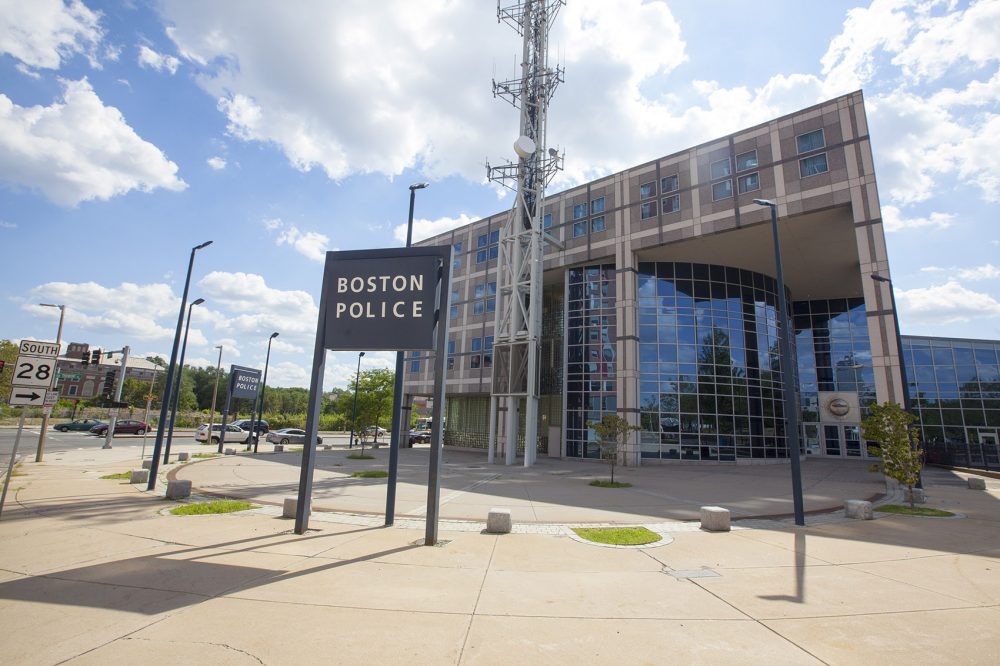Advertisement
Groups Call On Boston Police To Drop Social Media Monitoring Plan

Several civil rights groups and advocacy organizations are asking Boston officials to cease plans to spend $1.4 million on software that will allow police to monitor people's social media activity.
In a letter addressed to Mayor Marty Walsh and Police Commissioner Bill Evans, the ACLU of Massachusetts and 20 other civil rights groups, community organizations and religious groups expressed concern that the surveillance technology would violate privacy rights and be used to target certain individuals.
"Spending scarce taxpayer dollars on surveillance of online speech and associations frustrates the BPD’s mission of community-oriented policing, threatens our civil rights and liberties, and undermines public safety," the letter reads. "We are concerned that social media surveillance software will be unfairly focused on people of color, Muslims, and dissidents -- if not today, then under future mayors and different police commissioners."
The letter also pointed to a 2012 ACLU report that found the police department's Boston Regional Intelligence Center conducted extensive surveillance of peaceful activists, protesters and groups such as Veterans for Peace and CODEPINK.
"Dissidents were labeled 'extremists,' although there was no indication that these peace groups engaged in or planned to engage in violence," the letter reads. "We are not aware of any subsequent changes to BPD policies that would strengthen civil liberties protections and guard against such intrusions."
Kade Crockford, the director of the Technology for Liberty Project at the ACLU of Massachusetts, said the cost of the program has outraged many. Crockford believes those funds could be better spent elsewhere.
"This is a question frankly about where our priorities lie as a society," Crockford said. "We really think there ought to be a larger conversation about a shift in resources away from punitive measures — like surveillance and policing and prisons and courts — and investments in what people really need, which is housing, health care, education, jobs frankly and long-term drug treatment."
Many of these issues were raised last week at a City Council hearing on the matter. Boston Police said they'll focus on criminal activity and threats made online — and the technology will help them do that more efficiently.
"People who we feel are driving the violence and carrying firearms, we’re going to look online at publicly available information," Police Superintendent Paul Fitzgerald said at the hearing. "We prefer to be preventive than responding to crime."
At the hearing, police didn't offer many details on how a social media surveillance program would work and said the department hadn't yet selected a vendor for the program.
"The department is still in review of it and in the learning process, so no decisions have been made," Boston Police spokeswoman Myeshia Henderson said Tuesday.
The groups that issued the letter hope the department decides not to move forward.
"We’re hoping that the mayor and the police commissioner will hear from impacted communities and reverse their plans to spend $1.4 million on social media monitoring software that we don't believe will advance public safety and will exacerbate existing trust issues between communities and the police," Crockford said.
This type of technology is already being used by other police departments, and the FBI recently signed a deal to get access to Twitter data.
In October, the ACLU released a report that found police tracked protesters in Baltimore and Ferguson, Missouri, using a surveillance program. Police got the information from social media data that was provided by Twitter, Instagram and Facebook to Geofeedia, a company that analyzes social media data. After the report, some of those social media companies cut off GeoFeedia's access to user data.
